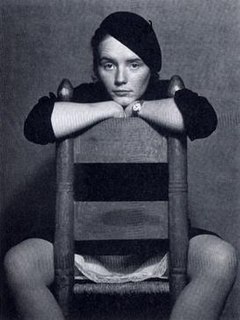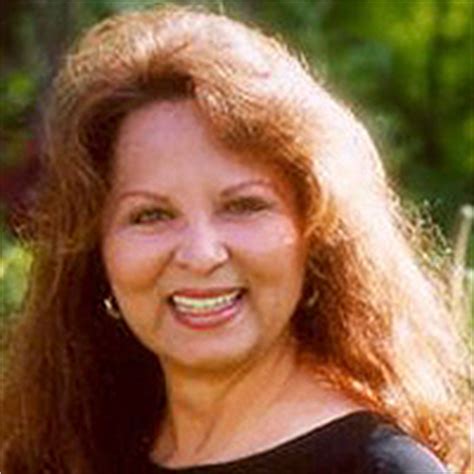A Quote by Lisa See
Our words had to be circumspect. We could not write anything too negative about our circumstances. This was tricky, since the very form of a married woman's letter needed to include the usual complaints -- that we were pathetic, powerless, worked to the bone, homesick, and sad. We were supposed to speak directly about our feelings without appearing ungrateful, no-account, or unfilial.
Related Quotes
I realized that most white Americans knew very little about our history and our struggle, and were having difficulty understanding the basis for our agitation and our resistance and our complaints. I also discovered that while black Americans had a sense of the beauty and tragedy of the journey from the time of slavery until now, we were not rooted in the specifics. I thought one way to familiarize people with that history would be through the voices of the great folk artists.
When we can't hold back, or set boundaries, on what comes from our lips, our words are in charge-not us. But we are still responsible for those words. Our words do not come from somewhere outside of us, as if we were a ventriloquist's dummy. They are the product of our hearts. Our saying, "I didn't mean that," is probably better translated, "I didn't want you to know I thought that about you." We need to take responsibility for our words. "But I tell you that men will have to give account on the day of judgment for every careless word they have spoken" (Matt. 12:36).
I had once believed that we were all masters of our fate--that we could mold our lives into any form we pleased... I had overcome deafness and blindness sufficiently to be happy, and I supposed that anyone could come out victorious if he threw himself valiantly into life's struggle. But as I went more and more about the country I learned that I had spoken with assurance on a subject I knew little about... I learned that the power to rise in the world is not within the reach of everyone.
Negative feelings are in you, not in reality. Stop trying to change reality. That's crazy! Stop trying to change the other person. We spend all our time and energy trying to change external circumstances, trying to change our spouses, our bosses, our friends, our enemies, and everybody else. We don't have to change anything. Negative feelings are in you.
Our akhara was very basic. It was just a little opening next to where the animals were tied. We had to first dig the soil with our bare hands, make it loose, before we could begin our session. I used to hate it. It also used to be either too hot or too cold. There were no mats, no mattresses, nothing.
I was born to be married. I just feel comfortable there. I love the idea of being partnered for ever. I love my girlfriend, we've been best friends since I was 18. There's not a thing we haven't been through except for marriage... We've had talks about what we would name our kids since we were in our 20s.
Me and my sisters were taught that if our eyes worked and our legs worked, we were beautiful. We had so many kids in our family that if we all got in front of the mirror and were ashamed of browns and golds and yellows and whites, and we believed what society told us - that the darker people were less attractive and the lighter ones were prettier - we would have had sibling murders. My family, being half-rural and half-military, just came from a different place.
To disguise nothing, to conceal nothing, to write about those things that are closest to our pain, our happiness; to write about our sexual clumsiness, the agonies of Tantalus, the depth of our discouragement-what we glimpse in our dreams-our despair. To write about the foolish agonies of anxiety, the refreshment of our strength when these are ended; to write about our painful search for self, jeopardized by a stranger in the post office, a half-seen face in a train window, to write about the continents and populations of our dreams, about love and death, good and evil, the end of the world.
I have always been a letter writer, and I found when my numbers got over half a million, I couldn't think about how many people there were out there. I had to think as if I were writing a letter to my brothers and sisters, to my good friends with whom I have had a correspondence since I could hold a pen.
If we understood the power of our thoughts, we would guard them more closely. If we understood the awesome power of our words, we would prefer silence to almost anything negative. In our thoughts and words we create our own weaknesses and our own strengths. Our limitations and joys begin in our hearts. We can always replace negative with positive.







































